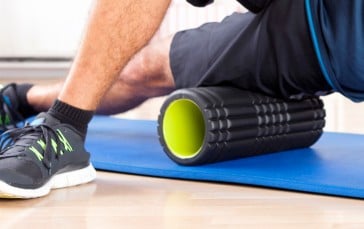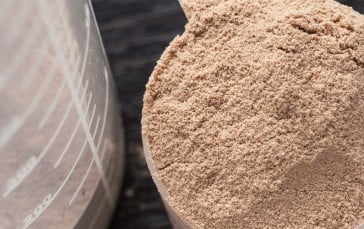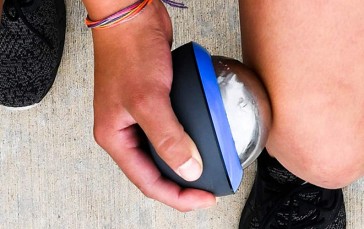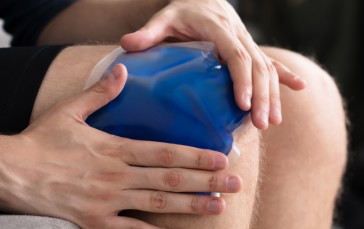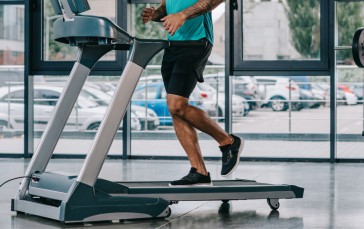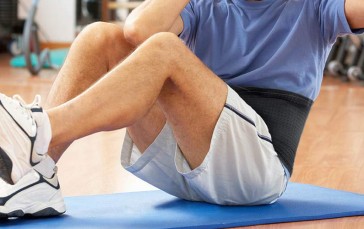Tips To Stop Leg Cramps
If you suffer from leg cramps, you’ll know that they can hit at the most inconvenient moments; whether you’re lying in bed about to drift off or setting off on a lengthy run, the sharp stabbing pain can cause some serious debilitation. If your leg cramps persist, they can disrupt your exercise or sleep routine, two things that we take very seriously. Lucky for you, we’re on hand with a whole host of tips and tricks you can try out in a bid to stop leg cramps.
Leg cramps are caused by a sudden contraction or tightening of the muscle in your calf and can last a few seconds to a few minutes. You can temporarily ease the discomfort of leg cramps by stretching out the muscle nice and gently, but we’re on hand to help with the long-term solutions too. In order to keep painful leg cramps at bay, it’s essential that you are taking care of your body and nourishing it the way you should. We’re taking a look at the lifestyle practices and handy equipment you can utilise to do exactly that.

Stay Hydrated
One of the classic causes of leg cramps is dehydration, which is likely something you may have overlooked until now. If you are experiencing fluid depletion either during a workout or throughout the day, this can cause your nerve endings to become sensitised which can trigger painful contractions that lead to cramps. If you struggle to get your recommended daily intake of water, it’s about time you invested in a handy water bottle so that you can sip throughout the day. After a few weeks, you’ll be intaking 2 litres or more without evening realising!
Combat Mineral Deficiency
When you’re working hard, it’s not just water that you sweat out, you’re also losing electrolytes. If you’re low in electrolytes and other essential minerals before, during or after a workout, this imbalance can trigger leg cramps. If you exercise regularly, vitamins and minerals are really something you should be keeping check of to avoid a whole host of side effects that come with deficiency. If you think this might be the culprit that’s causing your leg cramps, you can try eating wisely and incorporating muscle-friendly minerals into your diet as much as possible. If you’re struggling to get the recommended daily intake, you should try out multivitamins so that you can rest assured that you’re fuelling your body correctly.

Ensure You’re Not Lacking Protein
With protein all around us when it comes to fitness and lifestyle, you may not think that a protein deficiency is something that concerns you, but if you’re working over-time in the gym, you might not be getting as much protein as you should. If you think this might be the case for you, particularly if you’ve recently switched up your diet plan, you should record and monitor your intake. If you need a helping hand to reach your daily recommended intake each day, there is a protein powder for almost every goal on the market today, whether you’re fasting, bulking, vegan or cutting carbs, there’s an option for you!
Be Mindful Of Muscle Overuse
If you’ve intensified your training routine, you might find that you’re suffering leg cramps as your body is working hard to adapt to your new regime. When you’re pushing your body further than usual, it’s seriously important that you are resting your body. Our muscles are working hard every time we move, so they deserve some TLC. If you’ve not already tried it out, there are a whole host of benefits to using a foam roller for muscle repair. You can use a foam roller to warm up or cool down after a workout, if you want to boost flexibility you should use it beforehand, and post workout for recovery, or both!

Alter Your Exercise Intensity
If you find that your muscle cramps are induced as a result of intense exercise, whether you’ve increased intensity or recently restarted a particular exercise, you might need to take it back a notch. There’s only so much vitamins, minerals and foam rolling can help you with. If you’re often in pain during your workout, it might be your body’s way of letting you know it’s too much, too soon. Of course, you know your body best, so it’s very much a case of identifying your capabilities and respecting them to avoid any painful leg cramps or further injuries.
Rest When Your Body Needs It Most
We’re often guilty of pushing our bodies to the limit before taking the rest that we so desperately need. You can be more prone to leg cramps if your body is already overtired. Whether your body is tired from deficiency, dehydration or lack of time to recover from a previous workout, pushing yourself too far can be more damaging then you might think. When your tired muscles are simply not functioning at their peak, your regular exercise regime becomes a lot more strenuous.
Did you know that nocturnal leg cramps affect more than half of adults in the US? These can be triggered by tiredness, so whether you’re experiencing cramps during a workout or when you’re trying to sleep, your body might just be crying out for a rest.

Move Your Muscles Regularly
If you sit down all day or stand in the same position for a prolonged period of time, this can contribute to muscle fatigue. Although it’s not one of the key culprits, it can definitely have a noticeable effect. To combat a fatigue of this kind, you should keep moving regularly. If you’re often sitting down, spend a couple of minutes of every hour walking around. If you’re standing for long periods of time, be sure to take the weight of your feet as and when you can.
If you continue to experience painful leg cramps and don’t believe any of these are the causes for them, you should see a doctor or physio to help you to identify and combat the issue. To put it simply, be sure to stay hydrated, listen to your body and fuel it with the nutrition’s that it needs to function and recover.


